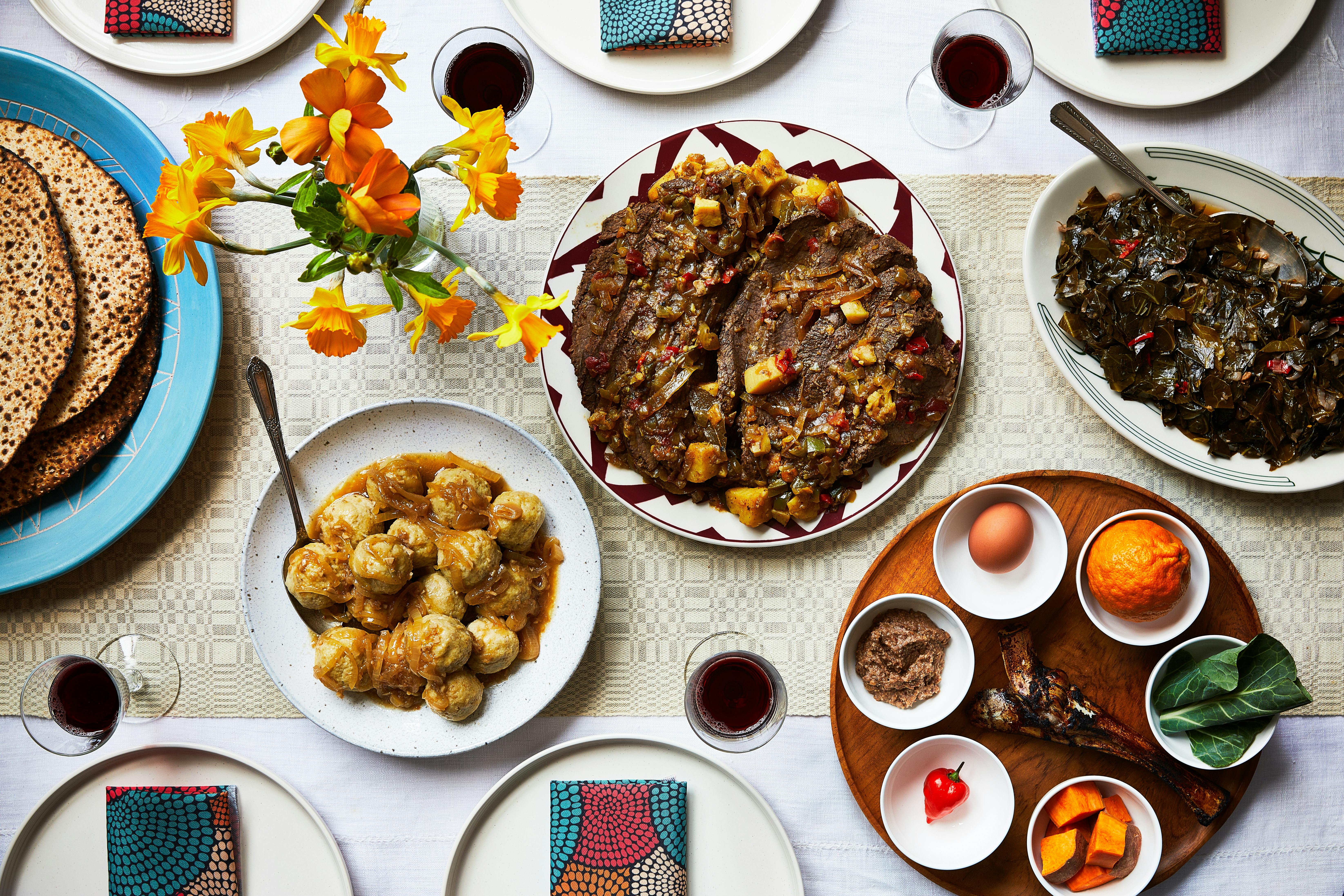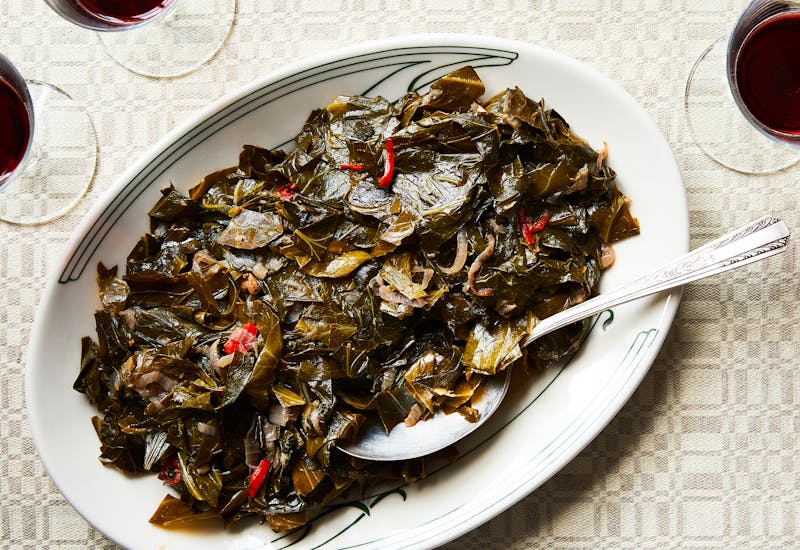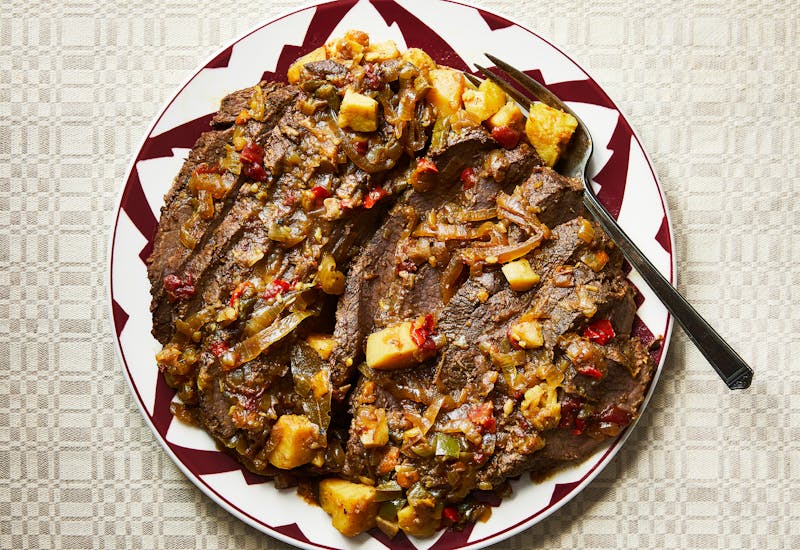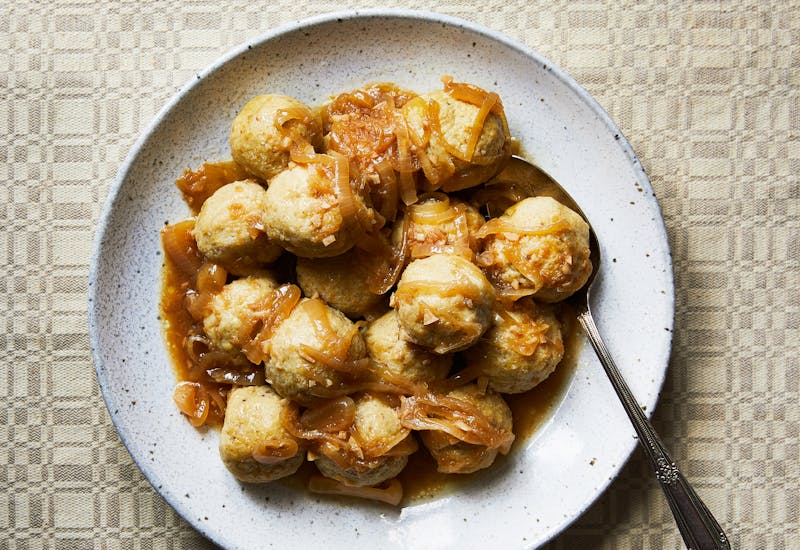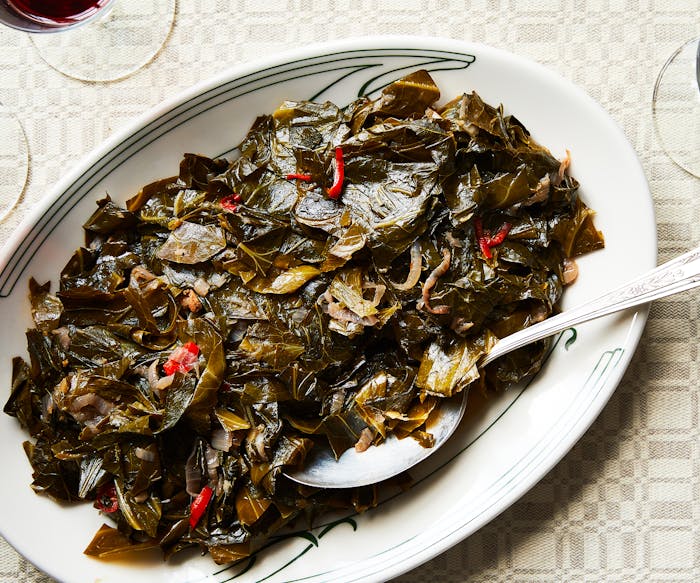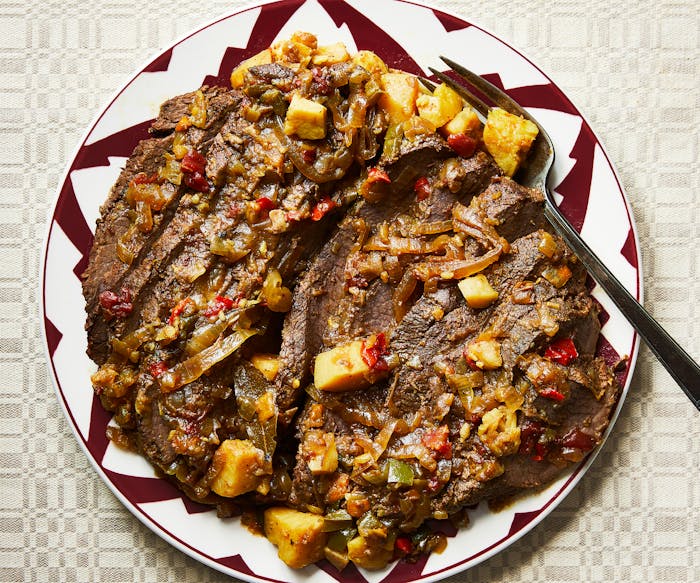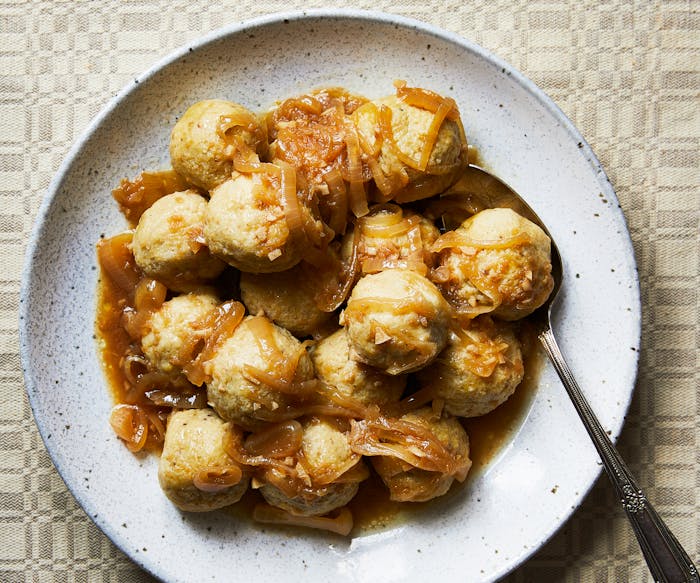Passover is a holiday where we are each asked to find personal meaning in an ancient story and ritual. This year, we turned to author and friend Michael Twitty to share a story about the first Seder he hosted in a home of his own and the recipes he served. You can also catch Michael on Schmaltzy.
A holiday is supposed to engender feelings of respite and warm tidings. A holiday means freedom from stress and maybe goodies flying freely into your mouth until you’re beyond sated. I experienced that feeling growing up in a nominally Christian home. I felt like the gift was the holiday itself — the house looked festive with silver, and metallic reds and greens, and the tree looked magical with a spire or star surrounded whimsically by wrapped gifts. Hey, this was early 1980 something and there were commercials that reminded you how things are supposed to be: extravagantly garrish, Norman Rockwell, with ham or turkey or both optional on the table as per Black American family norms.
Fast forward, and I'm in my mid 40s in the early 2020s, still Black, but Jewish. And I gotta go to work. It's Passover, the first one I hosted in a home of my own in sub-rural Virginia. It’s gotta be lit. The holiday is often called the “Festival of Liberation,” but every Yiddishe Mama knows that's a lovely poetic name, but you either love it or hate it. It's the escape from forced labor that wasn't.
Jewish tradition embodies irony, satire, subversion, conflict, and oppositional thinking. That's exactly why Pesach is my favorite holiday, all eight days. I have to do all the things I would rather not: deep clean, plan, cook for a crowd. My husband, who is not so familiar with Jewish tradition, falls back to his favorite phrase as the borrowed blowtorch performs the task of libun in order to kill the presence and taste of chametz or leavening. He asks: "Is this really Judaism or am I being punked?"
The foil comes out after the boiling water has hit metal, marble, and wood. Three layers and it gets taped down. I have no idea whose hashgachah (kosher oversight) is really being employed here, but the pain in the tachat (that’s Hebrew for behind) involved seems kosher enough to me. It keeps getting later and later, three sets of hands (mine, my husband’s, and those of culinary historian and friend Tonya Hopkins) are working and somewhere around 4 a.m. on the first day of Passover we are all exhausted.
The next morning, the weather is clear and clean. The table is ready to seat a crowd of 20 plus people, the sky is blue and sparkling, and my new house smells like chicken, brisket, roasted vegetables, and absolute clean. I rush downstairs like I used to on Christmas morning, and the same feeling gets me, wonder and awe. The candlesticks are glowing and the Seder plates are set out: one traditional and the other symbolizing the African American/African Diaspora experience announce that this my Black Jewish table; I am proudly AfroAshkemizfardi.
The guests are people who have never been to a Seder, they are people who are queer like us, they are every American census group, they are Jews who need a place for Seder. Some are strangers and others are old friends. We are vegans and carnivores, together united in the pursuit of Afrikomen. There are plague toys and schlocky Passover song lyrics, even as we discuss the things that plague us today.
Passover is my favorite holiday because the planning and cleaning and cooking is about telling our national origin story as Jews just as it is about bringing people together to make a chosen family. The feast and customs we share show how our part of Jewishness reflects the beauty of the whole.
The West African brisket, collards from my book “Koshersoul,” yassa sauced kneidlach, and many other goodies tell my story across the generations, from a great-great-grandfather liberated from slavery the day before erev Pesach 1865, to his African forebears then forward to me asking the Four Questions in Hebrew, Yiddish, and Ladino as well in Mende-Vai, Igbo, and Yoruba. These feet have set foot in West African nations and in Israel, tasting and learning about food across the worlds I belong to. Here it all is, finally before me, my origin story in song and in feast, well worth the wait and energy and effort for a family I'm grateful to have.
For two nights over 20 people, each a new group, sat at our first holiday table. They were family not because everyone practiced the same way or because everyone believed the same thing, but because everyone needed nourishment, love, and celebration. The best thing we served was people having the feeling of a heimish holiday table where they felt welcome and effortlessly happy. Our rainbow of every background imaginable inside and outside of the Jewish community sang and read the Haggadah into the wee hours of the night. We made Pesach, we made Seder, we made home.
